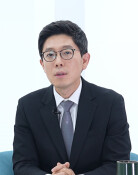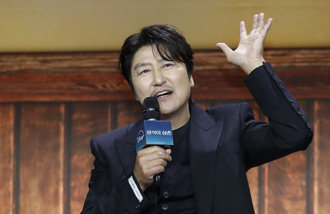Visiting female US ROTCs encourage Korean counterparts
Visiting female US ROTCs encourage Korean counterparts
Posted June. 29, 2011 23:42,
Seven American women in military uniforms visited the Anam campus of Korea University in Seoul Wednesday afternoon. American Reserve Officer Training Corps cadets came to Korea as part of a field trip to explore different military cultures.
Korea`s Army Cadet Command hosted a military cultural exchange program for Korean and American ROTC cadets, including a meeting between Korean and American female cadets to celebrate the 50th anniversary of the ROTC program in Korea.
Korea introduced the ROTC program for women this year but the U.S. did so in 1973. American cadets who visited Korea University gave advice to their peers who started the ROTC program.
Though both groups were in the program, many differences existed among them including reasons for joining.
Korean cadets said they were significantly influenced by their parents and background. "I`ve admired my father, who saluted in a uniform, for all my life, said Jeong Ji-yoon, a junior majoring in physical education and whose father served in the Navy. I was frustrated because I failed to get into the (Korea) Military Academy. Fortunately, I did get a chance because of the new female ROTC program."
Cha Yu-ri, a junior majoring in history education, was selected company commander of the 51st ROTC program, and her father also served in the military.
On the contrary, American cadets said they joined the ROTC program for more practical reasons. Lee Jun, a Korean American majoring in history at Emory University in Atlanta, said, "I wanted to be a soldier and also wanted to cover my college tuition of 52,000 U.S. dollars through the ROTC program.
Roddis Maninang, a junior majoring in nursing at the University of Portland, said, "The government subsidizes all American ROTC cadets ranging from tuition to books. Your job in the military is guaranteed after graduation.
The American cadets gave advice to Korean counterparts who were fearful over their physical strength lagging behind that of their male peers. "You may not run faster than men and physical training can be tough, said Hailey Fischer, a junior majoring in history at Oregon State University, adding, But what I learned over the past two years as a cadet was how much you did your best every day.
"There are many challenges but what`s important is that we are now soldiers, said both Korean and American ROTC cadets in unison. I want to become a good soldier so that I can show that the military can be a field that women can make great accomplishments in.
The 24 American cadets who came to Korea will visit the Army Cadet Command in Seongnam, Gyeonggi Province, to experience traditional Korean culture until Friday.
jhk85@donga.com







